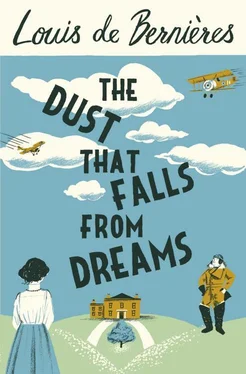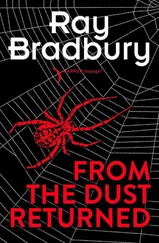In the meantime Mr McCosh sent a telegram to Netley to inform them that his daughter was fully engaged in looking after a sick soldier in Eltham, and requesting leave, which was shortly granted, since the flow of new casualties to that hospital had abruptly slowed to a trickle after 11 November. He sent another telegram to the police station in Walthamstow, asking them to locate Hutchinson’s family and tell them the news, and he sent yet another telegram to Armoury House to reassure them that their soldier had not deserted but was in fact gravely ill.
Millicent was in an extreme state of distress, brought on by helplessness. She knew that Rosie was right to exclude her from the sickroom, but at the same time she could not bear it, and could scarcely concentrate on her work. She made frequent mistakes, and was inclined to run sobbing from the room at short notice. Cookie found herself with a greatly increased workload, and grew bad-tempered, so that when Mrs McCosh unwisely accused her of deliberately spoiling the food, she inadvertently prompted a resignation crisis that Mr McCosh was only just able to avert by means of charm and his considerable ability to cajole. ‘Don’t ever do that again,’ he said to his wife, ‘I practically had to offer to marry her.’
‘The servants are the concern of the lady of the house,’ she replied, to which he responded, ‘And the lady of the house is the concern of its master.’
After four days, it became evident to Rosie that Sergeant Hutchinson’s disease had become malignant. She saw a strange heliotrope cyanosis developing, there was discharge in his ears, and he had terrible pains in his abdomen and chest that reduced him to breathless spasms. When she listened, she was sure that he was developing pleurisy, and when he began to cough up something sticky and bloody, she knew he had got pneumonia.
At this point she did what she should have done before, and called Dr Scott. He himself had just recovered from the disease, which he had caught in mid-October, and was now suffering from a kind of depression both in body and spirit that made it very difficult for him to work at all.
He examined the patient and listened to Rosie’s account of what she had done, and her apologies in case she had proved inadequate. He looked at her sadly and said, ‘My dear, you couldn’t have done better. You’ve done exactly what any doctor such as myself would have recommended. I have always had the greatest admiration for what you and your sister Ottilie have done in this war, and indeed, I would nowadays, after everything I have seen and learned, go so far as to say “Piffle” to anyone who asserts that a woman cannot make a good doctor. However, he now has pneumonia, as you have rightly found for yourself, and against a bacillus there is absolutely nothing one can do. It will certainly be some kind of pneumococcus. I wouldn’t be surprised if nephritis has also set in. I would have to take a urine sample, of course. I fear that his heart has been considerably weakened.’
‘Is there no hope?’ asked Rosie tearfully.
‘He’s going to drown,’ said the good doctor. ‘It is, at least, a peaceful death. Was he a man of faith? I think you might do well to call in a priest.’
‘Oh!’ exclaimed Rosie. ‘After getting through the whole war! It’s so unfair!’
‘He didn’t get through the war, my dear. He has been exhausted by the war, and this is how it’s got him after all.’ He paused and sighed. ‘We all die, my dear, some soon and some late, but we all die. One might even feel a little envious.’
‘I know what you mean, Doctor,’ said Rosie softly.
Sergeant Leonard Hutchinson, as so many do, waited until dawn before he died, whilst Rosie was asleep beside him in her chair, her Bible open at the Book of Job. Her former colleague might have seen angels in the form of his comrades coming to carry him away, but there was no one to see anything. He breathed less and less often, more and more shallowly, until there was a pause that seemed to last for minutes, and then he breathed one last rasping breath.
When Rosie awoke, she leaned over him and kissed him on the forehead. Before leaving the room she turned the mirrors to face the wall, then she went down the garden to Bouncer’s grave and sat in the smoke-fogged air until she grew too cold.
At his funeral in Walthamstow, where Mrs McCosh surprised everyone by her wailing, shots were fired over his grave, and the shell of one more valiant soul was swallowed up by the ravenous earth.
Millicent was prostrated by grief and by the collapse of her beautiful dreams, and it was the sisters and Cookie who carried her through it. Rosie learned very quickly not to offer her the consolation of religion. The first time she tried, Millicent turned on her with fiery eyes and said, ‘No! No!’ running away with her hands over her ears. It was God she blamed for the theft.
Oddly enough nobody in the family was infected by the influenza until the second wave struck in late February. On the day that France proposed the idea of setting its frontier with Germany at the Rhine, the whole household, including Cookie and Millicent, were abed, helpless with fever, whilst Rosie struggled to look after them, although herself most terribly ill. It was only when they were beginning to recover that she took to her bed and slept in a fever for three days, tormented by strange dreams about weddings, and about the wounded men she had attended at Netley.
49. Rosie Waiting for the Cats’ Meat Man
ROSIE WAS WAITING for the cats’ meat man. She was perched on the window seat of the large room at the front of the house, where the family Bible lay open on a lectern. Here, each evening, her unbelieving but respectable father would read the next chapter, and then they would all say the Lord’s Prayer together before going into supper in a modest and humble frame of mind. They called it ‘the morning room’ even though it had no clearly discernible connection with mornings and did not receive the full light of the sun until the afternoon. It overlooked a classical porch, painted white, and a neat gravel driveway devised in the form of a crescent, so that carriages might have no trouble coming in and going out. This crescent contained a patch of lawn planted with the young walnut tree whose leaves Mr McCosh loved to see turning yellow in the autumn.
Rosie was not busy. There was a limit to the amount of time one could spend sewing or reading, or playing Ezra Read on the piano, or walking down to the Tarn to watch people throwing tennis balls for their dogs, or thinking about all the people who had been killed, or just looking at the rose beds, and now she was fretting with boredom. It was utterly horrible to have nothing to do after having been frantically busy for years. When she was bored, her mouth filled with a metallic taste, as if she had been sucking on a copper penny. She had the tune of ‘Gilbert the Filbert’ running through her mind, as she seemed to have done ever since 1914. It had become so much a part of her stream of thought that she barely even noticed it any more.
Although the room faced west, it received plenty of light even quite early in the morning, because its windows were very large. Sometimes Rosie and her sisters just sat on the bench that had been built into the bay, and watched the world go by in the street outside. It was upsetting to see so many amputees, but on the other hand it was nice to watch the costermonger with his barrow full of apples, and the fishmonger who brought his fish up from Brighton in dog carts that dripped with melting ice. Rosie did not know what kind of dogs they were, but they were lean, powerful and shaggy, and clearly enjoyed their gruelling job.
Best of all was the cats’ meat man, a strong, roaring Irish fellow in his late forties, with a patriarchal ginger beard, who passed up the street every other day with a basket of horseflesh on his head, fresh from the knacker’s yard. Unlike the other mongers, he varied his cry from day to day, and it was always amusing to hear whatever he came up with next, but it was usually a variation on keeping your cat on the mat happy and fat.
Читать дальше












